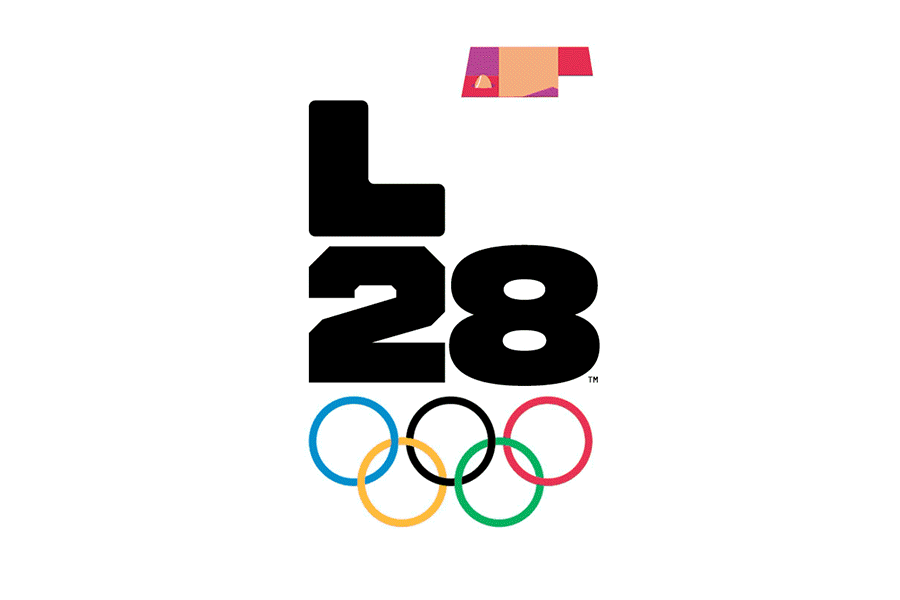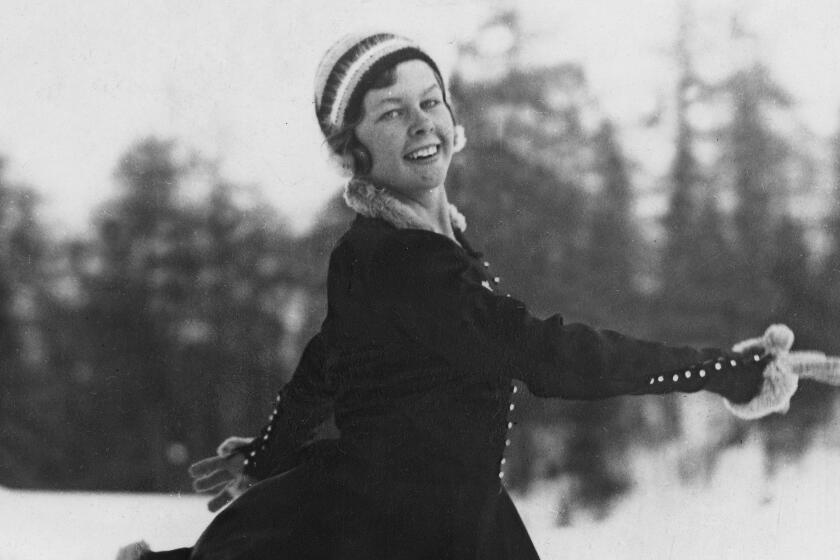U.S. Volleyball Gets Old Hand : A Net Gain of 7 Years
Laurel Brassey Kessel is older and wiser. And luckily, for her, so is the game of volleyball.
For nine years, Kessel, 33, had devoted her life to volleyball and the pursuit of an Olympic gold medal. Then in 1980, when the United States boycotted the Olympics, her quest abruptly ended.
Kessel, who played at Crawford High School and San Diego State, retired from the national team, eventually got married, moved to New Mexico, went into coaching and created a new life for herself.
But Thursday, when the current national team plays its first match at the Pan American Games, on its way to the 1988 Olympics, Kessel will be on the court in Indianapolis.
“I never really thought I’d play again on the national team,” Kessel said. “I thought, ‘Well, my time is passed. (But) It’s a new team and a new coach.’ ”
The coach, Terry Liskevych, who left University of the Pacific to coach the national team in 1985, sought Kessel for the leadership she could bring to the team.
Kessel’s experience--she played in 269 international matches with the U.S. team between 1972 and 1980----is perhaps her strongest contribution to the team. Liskevych also likes her skill as a setter and her aggressive style of play.
Kessel was 26 when she quit playing. She had no college degree, no work experience and no training in anything except volleyball.
“It had been my whole life,” she said.
Back then, under Coach Arie Selinger, the national team had trained six to eight hours a day, every day except Sunday, almost year-round in preparation for the 1980 Olympics.
“Mentally it was really hard to keep doing that day in and day out,” she said.
But when Liskevych became coach, he brought a different philosophy.
“We want to be best in world, but at the same time not to forget there are other things besides volleyball,” Liskevych said.
“We want this to be a symbiotic relationship, to make volleyball success help with future success.”
Though Kessel, who is coach of the University of New Mexico volleyball program, has already established her own success in life, the new philosophy is easing the transition back into competitive play.
So is the support of her husband, John, who works for the United States Volleyball Assn. When she asked him what he thought about her playing again, he told her, “Of course you have to do it.”
And the university gave her a leave of absence.
The schedule has been rigorous since Kessel joined the team in April. The team has traveled to the NORCECA (North/Central America, Caribbean Zone) championships in Havana. There it qualified for the 1988 Olympics by finishing second to Cuba. Then there was a tournament in Moscow.
But Liskevych has allowed the team a few days off after each trip and has encouraged players to pursue work or school interests outside of practice.
“Physically I feel better--fresher--and mentally I feel real good,” Kessel said. “After a few days off, I’m ready to go again.”
The U.S. team will go up against three of the top eight teams in the world this week in Indianapolis. They play Cuba on Saturday, Peru on Sunday and Brazil next Tuesday. The U.S. team is hoping to meet Cuba in the championship match.
“Last time we played them,” Kessel said, “they annihilated us.”
Playing in the Olympics is about the only thing Kessel hasn’t achieved in her career. She has played internationally in Italy, professionally last spring with the Dallas Belles, and she even played with the SDSU men’s NCAA championship team in 1973. Because of her travel with the national team she couldn’t play on the women’s team.
Now an Olympic medal could be very plausible.
“We’ve had other setters that we weren’t sure could lead us to a gold medal in Seoul,” Liskevych said. “But we think Laurel can do that.”
After leaving the national team and going through a difficult yearlong adjustment, Kessel began working toward the completion of her degree, but stayed involved in volleyball. As a member of the U.S. Olympic Committee executive board, she worked at the 1984 Olympic Games in Los Angeles, when the United States took the silver medal.
“That was really hard,” Kessel said. “Those were seven of my teammates and I knew I could be playing, but I had made my choice.”
But when Liskevych made the surprise offer to join the team this past April, it didn’t take Kessel long to make up her mind.
“I took a few days to think about it,” she said. “But I knew I would accept.”
Kessel is five years older than the next oldest player on the team. But she said the adjustment to the team has been easier than she expected.
“We don’t associate that much as a group,” she said. “But on the court, every time we play we keep getting better.”
Physically, Kessel said she is feeling in good shape.
“When I first started playing, there were three or four women on the Soviet team who were over 30,” Kessel said. “And I thought ‘Wow, I wonder if I’ll be playing when I’m 30?’ I’ve found I’ve gotten so much smarter about the game. When you’re younger you try to do everything physically. But when you’re older, things come so much more easily.”
More to Read
Go beyond the scoreboard
Get the latest on L.A.'s teams in the daily Sports Report newsletter.
You may occasionally receive promotional content from the Los Angeles Times.




